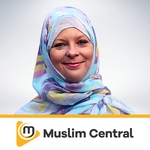Lauren Booth – Lydda Death March – Nakba 1948

AI: Summary ©
The transcript describes the devastation of the village of Lydda, during the yourselves and family’s march to reach safety. The men were hit by army and killed by the Jewish army. The woman in the village was woken up by the
hears of the men and their families and they
the woman lost her life. The woman had a ring and was drinking water. The woman had a lot of money and was hesitant to go back to her
the woman lost her life and lost her family.
hears of the men and their families and they
the woman lost her life. The woman had a ring and was drinking water. The woman had a lot of money and was hesitant to go back to her
the woman lost her life and lost her family.
AI: Summary ©
The city of Lyd is very famous for
its thyme.
Because the size of the fruit is the
largest fruit in the world.
Lyd had a lot of fruit trees.
It had, for example, apricot trees and green
almonds.
The Israeli forces used the villages.
The villages were destroyed.
Then the villages around Jaffa were destroyed.
We lost the security of the Israeli forces.
The Israeli soldiers were knocked on the doors.
They said that anyone over the age of
15 or 16 should go outside and wait
in the square.
Those who were late were killed.
One of the young men stood in line.
The officer came and said, you can go.
And the young man said, you stay.
We found out later that my father had
returned.
He was afraid of the road.
19,000 Palestinians lived in Lydda.
But its population had been swollen by refugees
from Jaffa and outlying villages.
Orders for the expulsions to take place came
from the first Israeli Prime Minister David Ben
-Gurion and leader of the terrorist group Haganah
Yitzhak Rabin.
The population of Lydda did not leave willingly.
What followed would become known as the Lydda
Death March.
The men of the town fought for a
few hours armed with old rifles, then took
shelter at the Darmish Mosque.
They surrendered but were massacred by the Jewish
forces.
176 bodies were found in the mosque.
Those fleeing the massacre had their belongings looted
by Jewish soldiers.
Some who were slow to hand over their
valuables were also killed.
We went to look for soldiers.
We put up a tarp, and every time
someone passed by, they took their belongings.
I walked with the people.
I was weak because I was hungry, I
couldn't sleep, and I was thirsty.
I felt dizzy and fell to the ground.
Then I saw people pouring water on me.
They poured water on me.
I woke up and drank it.
I walked about 10-12 km between the
mountains.
I looked behind me and saw people coming
out of Lydda.
We were in a high area.
I saw people walking like this, like animals,
between the mountains.
The summer of 1948 was treacherously hot.
Refugees from Ramla and Lydda were marched out
of town, toward the hills in the direction
of Ramala, more than 20 miles away.
Three days later, the men, women and children
on the death march reached safety.
More than 350 had died of thirst or
exhaustion.
The first to reach safety was a village
called Niallin.
Niallin is in the West Bank.
The last to reach safety was Lista.
They marched out of Lydda.
When I reached Niallin, I saw people carrying
buckets of water.
They were asking people for help.
I grabbed a bucket and started drinking.
The water came out of my nose.
I woke up.
It was as if I was drunk.
What happened?
Where am I?
Where is my mother?
Where is my father?
Where is my sister?
There was no one.
It was night.
It was summer.
If it had been winter, we would have
died.
When we reached Ramala, we didn't know anyone.
We didn't have any money.
My mother didn't have anything.
She only had a ring.
I don't know how the Jews found the
ring.
We sold the ring and bought food to
eat.
While I was walking, I saw a friend
of mine.
I was playing with him in a neighborhood
in Jaffa.
I asked him how he was.
He said he was fine.
I asked him how his mother and father
were.
He said his father didn't come.
I asked him if he had money.
He said no.
My friend had four pounds.
He gave me three pounds.
He gave me one pound.
My aunt in Gaza was in trouble.
She sent people to tell us to come
home.
The house was small.
There was only one bedroom, a kitchen, and
a bathroom.
The problem was that we needed a lot
of food.
We didn't have the money to buy food.
It was a very difficult life.
We had a lot of hope.
People said, we'll be back in a week
or two.
We lived in hope.
But it was false hope.
We live in a world full of injustice.
There is no justice.
The biggest crime in history has been to
take the Palestinian people from their land and
bring them to a foreign country.
When you look at the situation, you know
it's not appropriate for us to go back
to our country.
There is something that encourages me to go
back.
It gives us hope for our children and
grandchildren.